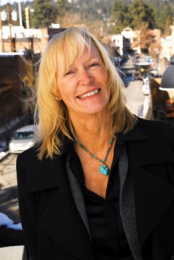 The majority of those choosing to vote in the recent election decided that despite our challenging economy it was okay to increase taxes. The majority of Central Oregonians did not vote to support the tax measures, however, unfortunately for us we are forced to go along with what those on the west side of the mountain decide.
The majority of those choosing to vote in the recent election decided that despite our challenging economy it was okay to increase taxes. The majority of Central Oregonians did not vote to support the tax measures, however, unfortunately for us we are forced to go along with what those on the west side of the mountain decide.
Pete Rencher summed it up best in this Outlook issue: “They have high unemployment and they’re mired in a deep recession, yet they just passed two tax measures that will make their state have one of the highest income taxes in the nation and a tax on a corporation’s gross that will make a company think twice before moving their business to Oregon. What planet are these people on?”
Perhaps enough sour grapes. We don’t like it, but there’s not much we can do about it. At best we might get our ineffective legislators to make the taxes temporary, but that is probably wishful thinking. We can move out of state, but if you have a business that is holding its own here, you can hardly afford to move. Besides we love it here, where else would we want to be?
So let’s focus on creating jobs, securing financing for small business growth and sustainability and spotlighting the high desert as the best place to work, live and play. We’re very excited abut the siting of Facebook’s data center in Prineville. It’s a coup for all of those who diligently worked on securing the project. It is no small measure that Facebook, a global company, has decided to spend some $200 million locally on construction and create permanent jobs that will help Prineville’s struggling economy.
Bend is already on the map with its golf tournaments, skiing, world class fishing, cycling and on the less positive side: “poverty with a view” catchphrase. It will subsequently be fascinating when some of the millions of Facebook users decide they want to know: why Prineville? What’s so great about it?
While waiting for Prineville to be discovered by the masses, our region still has much work to do. We need to support Senator Telfer as she goes back to Salem and helps pick up the pieces following the dismal election results. We hope she can help advance the Main Street Incentive plan that will encourage businesses and homeowners to invest in their properties through a tax credit. Other measures consist of providing a job creation tax credit to businesses that create new jobs, and helping small businesses retain employees by allowing them to defer state taxes until the economy improves.
Anything that can help small businesses retain employees and get our economy moving again is critical.
In his commentary (on page 19) Bill Watkins reminds us that when the lumber and building materials industry was dying, Central Oregon rebuilt itself. In a dramatic transformation, Central Oregon, by willpower and commitment, went from being a remote, rural economy to a sophisticated business-friendly playground for young entrepreneurs and baby boomers.
However, as we know, we became dependent on real estate and construction, only to wake up one day and find that our boom days were over. Few predicted we would fall so far so fast. We’ve been in a state of shock ever since.
But Central Oregonians don’t give up. With the high quality of life we have been able to maintain here, our natural resources, cultural assets and economic appeal, Central Oregon is well positioned to once again transform itself, to take the next step in building a diversified economy, one that provides stable employment and economic prospects. The goal should be an economy less volatile than the United States economy.
Dr. Watkins confesses that we have huge challenges, but Central Oregon has met big challenges before. He believes we have the energy, the resources, and the people to perform another amazing makeover. He insists that we have a unique opportunity for transformation, but it requires action. Oregon should position itself as the “anti-California” to promote its benefits in the face of a projected increasing exodus from our neighbor state to the south. Passively waiting for prosperity will not do. Central Oregon can move ahead, regardless of what the rest of Oregon chooses to do. pha


